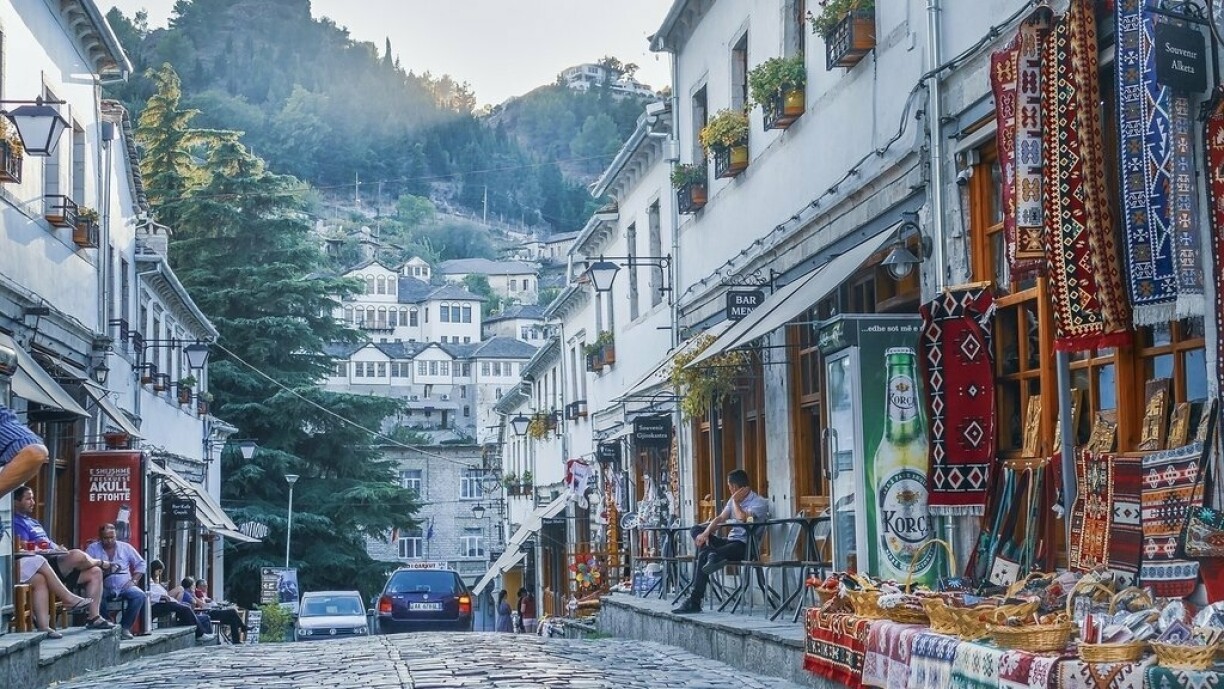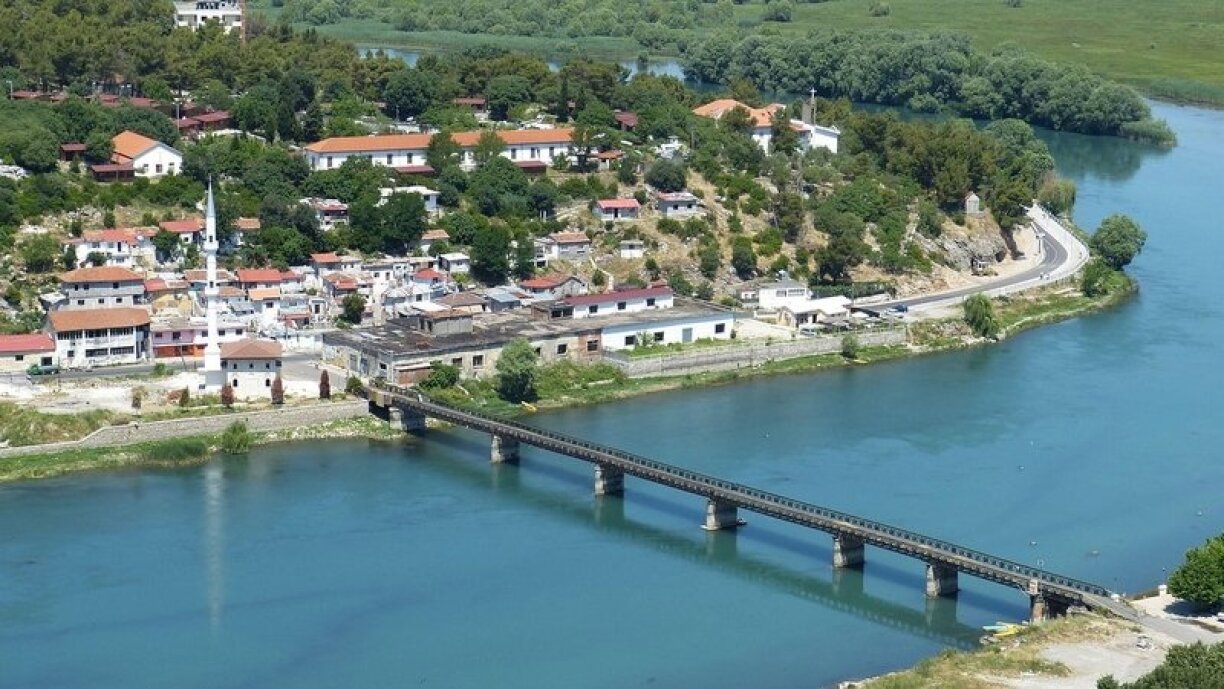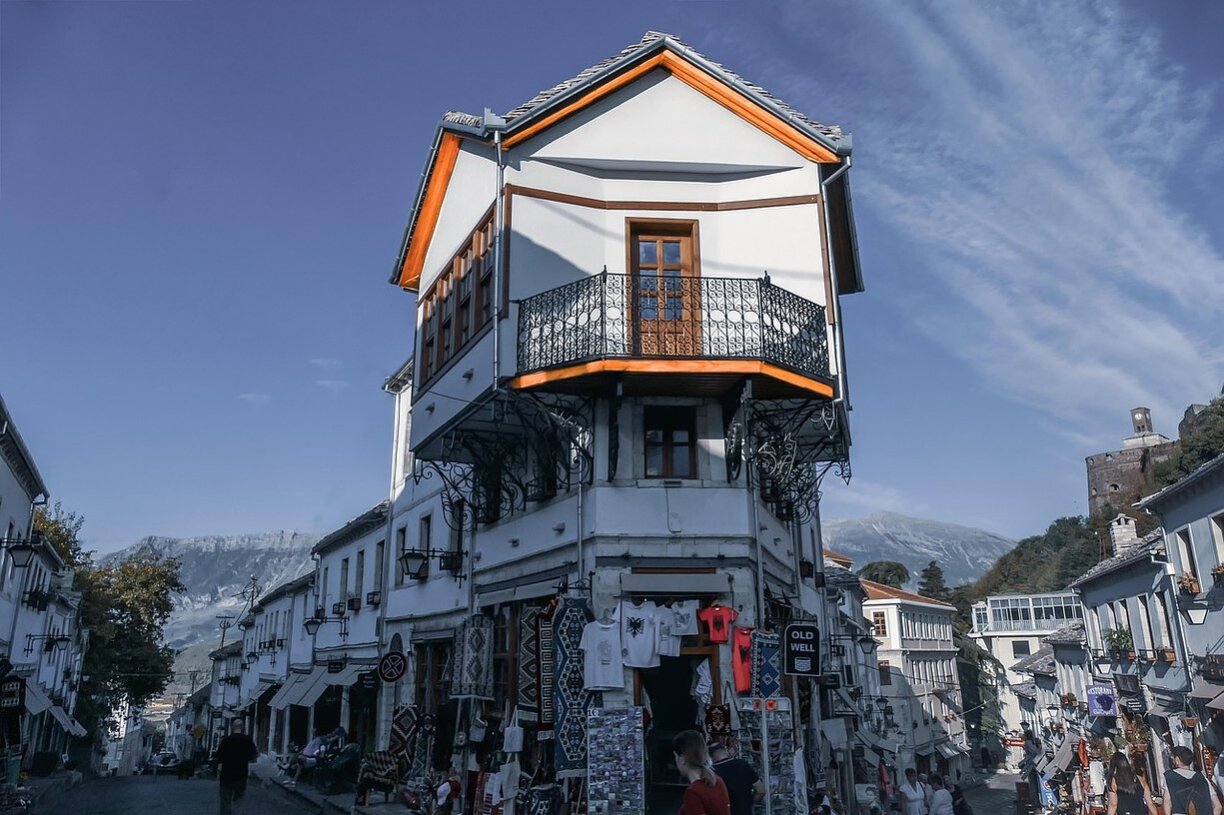
In this third instalment, we’re getting to know Albania, a country that is in the midst of transforming from an insider tip into a hotspot on Europe’s holiday map.
The country offers remarkable diversity in a small area, with nature far removed from mass tourism. In the north, on the border with Kosovo and Montenegro, lie the so‑called ‘Accursed Mountains’ or Albanian Alps. The Valbona and Theth regions feature hiking trails through spectacular mountain landscapes that appear barely touched.
Small villages with stone houses, clear rivers, and panoramic views make the area a paradise for outdoor enthusiasts and those seeking peace.
The Vjosa National Park, classified in 2023 as Europe’s first ‘Wild River National Park’, offers even more natural beauty. The Vjosa is regarded as the last major free‑flowing river on the continent, with the surrounding region home to over 1,100 species of animals and plants, including lynx, otters and rare birds.
The area is strictly monitored and protected, while gentle tourism is encouraged.
Those who prefer the sea to the mountains will not be disappointed either. The Albanian Riviera along the Ionian coast is one of the most beautiful yet least developed regions in the Mediterranean.
The beaches of Ksamil, Dhermi, and Himara have fine sand, turquoise waters, and a relaxed atmosphere – without the crowds of large resorts.
Since summer 2024, the coastline has become more accessible thanks to the Llogara Tunnel, a major infrastructure project improving the link between mountains and sea. The journey over the once‑dangerous mountain pass has been reduced from 30 to just seven minutes, boosting regional tourism.
The capital, Tirana, blends colour, history, and vibrant city life. Its centre brims with creative energy, from cafés with live music and street art to innovative restaurants and a young population that animates the city.
Tirana also confronts its past openly. The Bunk’Art 1 and Bunk’Art 2 museums, located in underground bunkers from the dictatorship era, tell the story of communism in a strikingly visual way.
Albania’s cultural heritage is equally rich. In the northwest lies Shkodra, one of the oldest settlements in the region, set beside the largest lake in the Balkans. Rozafa Castle overlooks the city with sweeping views of water, mountains, and river.

Further south, the UNESCO World Heritage cities of Berat, the ‘city of a thousand windows’, and Gjirokastër, known for its Ottoman architecture and stone houses, offer authentic, vibrant glimpses into Albania’s traditions and identity.

Although not yet part of the European Union, Albania accepts euros in many restaurants and shops. The national currency is the lek, but tourists often do not need to exchange money.
With a lower cost of living than neighbouring countries, Albania is a budget‑friendly holiday option.
In short, Albania offers spectacular nature, warm hospitality, rich culture and a Riviera to rival better‑known destinations. Whether hiking in the mountains, relaxing by the sea or exploring historic towns, it remains an unspoilt destination close to home yet worlds apart.
Alternative getaways (1): Andorra – small country, big adventures
Alternative getaways (2): Slovakia – nature, culture, and enjoyment in the heart of Europe
Alternative getaways (4): Moldova – wine, culture, and hidden treasures
Alternative getaways (5): Poland – cultural treasures, hearty cuisine, and natural beauty
Alternative getaways (6): Liechtenstein – extraordinary nature and culture in just 160 km²
Alternative getaways (7): North Macedonia – the hidden gem of the Balkans
Alternative getaways (8): Belgium – more than shopping and beaches
Alternative getaways (9): Romania – welcome to Count Dracula’s?!
Alternative getaways (10): Malta – Mediterranean island with old-world charm